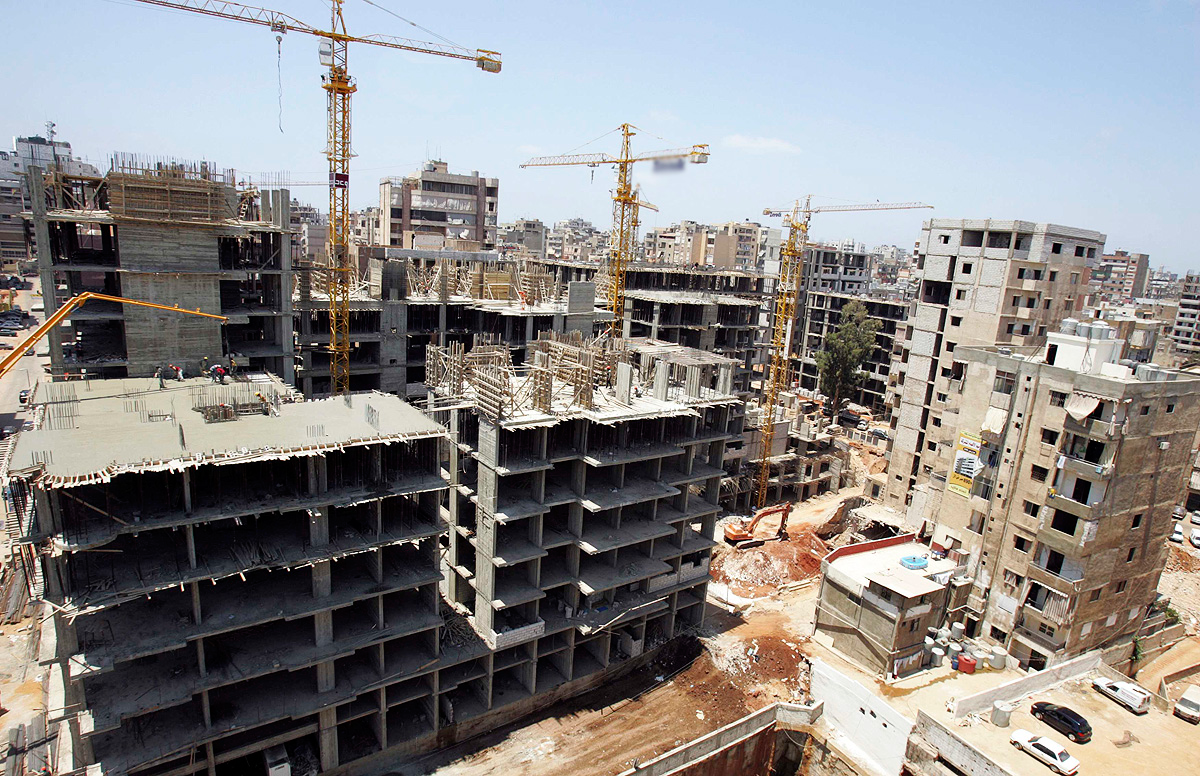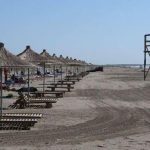TIRANA, Oct. 4, 2022 – Home prices in Albania have increased by almost 40 percent compared to the same period last year, a spike that has caused concern over affordability, economic stability and worries over sources of funds being used to fuel the ongoing construction boom.
The price increase of 39 percent is massive for the market, compared to the fact that home prices had increased on average only by 50 percent in the 2013-2021 period, according to Albania’s central bank, which periodically issues reports on home prices.
As always, the Tirana metropolitan area leads the country in home prices, with the once luxury price of 1,000 euros per square meter having now become the standard in usually cheaper areas. In downtown Tirana the cost is three to five times that price for newer buildings — going up to 5000 euros per square meter in downtown high-rise buildings.
Representatives of the construction industry say the spike is largely being driven by brand new buildings, which are of higher quality and come at a greater cost as prices of labor and construction materials have all increased. So the cost of construction alone varies from 500 euros to 2000 euros in Tirana, according to the Association of Construction Companies.
“There has been an almost 100 percent increase in the price of iron, same thing with concrete … We have labor cost increases too,” Arben Dervishi of the association told local media, with wages going up 50 percent as Albanian companies try to keep their laborers and specialists from emigrating to places like Germany where wages are several times higher.
He adds that although the euro has declined in comparison to the local currency, most homes in Albania are sold in euros so there is no immediate benefit to lower prices.
Increase in prices puzzles experts
The increase in prices has puzzled some experts as it comes at a time when there is a record level of ongoing construction, according to permit numbers issued by municipalities, as well as an increase in emigration, which has shrunk Albania’s population and thus, theoretically demand.
One explanation is the purchase of homes from non-residents. About one in three real estate properties sold in Albania last year were purchased by people who don’t live in the country, according to a central bank survey.
However, the trend of purchases by non-residents is not new, as it has regularly been above 30 percent in recent years. Almost 40 percent of the non-resident buyers live in the European Union, according to the central bank data.
What is new is the increase in foreign nationals who choose to buy property in Albania, especially in coastal areas. Real estate agents say that purchases by foreign nationals or Albanians living abroad have an important role in this market. This includes Kosovo citizens who are interested not just in vacation properties in the seaside but in Albania’s cities too, no doubt related to the full opening of Albania’s labor market to them.
Small correction seen in latest data
Despite increasing numbers, a small correction can be seen in the latest data as the construction sector has started to slow down and the demand for mortgages has also declined.
Bank loans are involved in about half of real estate sales in Albania, according to the country’s central bank.
According to the Bank of Albania, bank loan applications decreased in the first half of 2022, influenced especially by a lower demand from individuals. The total number of loan applications reviewed by banks decreased by 4 percent in the six-month period and 3 percent in annual terms. Banks refused 18.1 percent of the applications they received, a number that is stable compared to last year.
Market operators have for years predicted a deadlock driven by falling demand and price fluctuations in relation to purchasing power in the country. But prices have only increased.
High prices could be a factor in increasing emigration
It is a major concern for locals looking to find first homes to create families and a potential driver for emigration, according to analysts. The new apartments are unaffordable to a dual income new family, and many are choosing to work abroad instead where wages are higher, further eroding Albania’s demographics.
For example, Tirana ranked as the worst major city in Europe and 230 out of 254 in the world in a recent survey, with Albania’s capital taking a big hit in the index specifically due to the unaffordability of its real estate for locals.
Tirana ranks 44th most expensive out of 254 cities and capitals in the ratio of real estate prices to income. Buying an apartment in Tirana is just as expensive relative to income as buying it in London, Milan, Rome or Munich.
The Municipality of Tirana has promised to increase the stock of subsidized housing as the price of rents has also spiked by more than 20 percent.
Worries over illicit funding
In addition to the increase in construction costs, the expectation that there will be fiscal amnesty is contributing to the higher prices, according to Ylli Sula, CEO at Çelësi media group, the largest publisher of home listings in Albania.
“The apartment prices are high because construction companies expect the effects of the fiscal amnesty, that those who have informal cash will invest,” he told local media, adding that because interest rates in the banks for savings have been very low, everyone will rush to buy real estate.
The issue relates directly to concerns over the use of illicit or informal funds in the real estate sector — a worry for local and international observers.
Last week, international representatives in Tirana increased pressure on the Albanian government to ditch a proposal to provide fiscal amnesty to undeclared income from abroad, which experts say would open a backdoor to funnel more dirty money into the economy.
However, Prime Minister Edi Rama appears unwavering in his plan to offer amnesty and legalize funds for individuals who declare up to 2 million euros in cash assets, taxed at 7 to 10 percent, without having to disclose the origin of the money.
The amnesty would mean protection from criminal or administrative penalties related to not having declared the assets and their origin.
Rama says it is aimed at releasing into the economy the funds that Albanian migrants have made abroad over the years through hard legal work but that it was done off the books or never reported to tax authorities.
Local and international experts, however, have raised concern the move would also benefit individuals in possession of funds coming from criminal or otherwise illegal activities.
Strong questions have also been raised about the ability of the institutions to prevent members of criminal networks from benefiting from this initiative, despite the established restrictions.
EU officials have expressed “serious concerns,” saying the initiative “would weaken Albania’s anti-money laundering controls, while doing little to increase the capacity of the tax administration to improve future compliance with tax requirements.”










